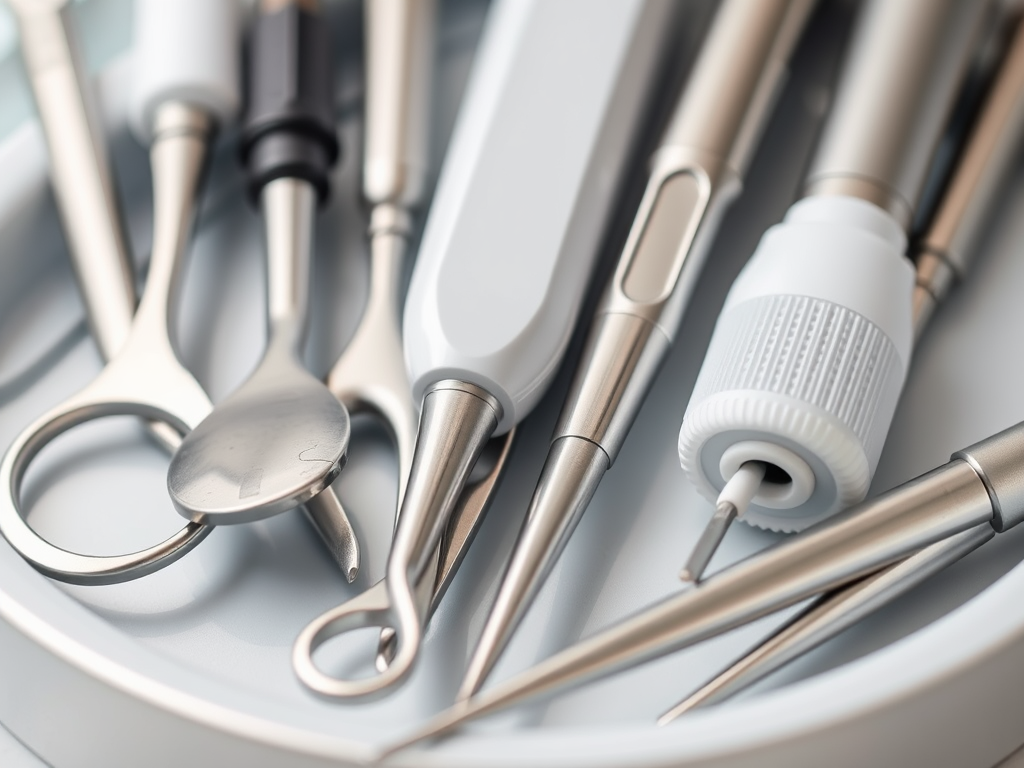Steps and Precautions for Using Intraoral Scanners
2024-11-01
2025-03-17
Dental health is an essential aspect of overall well-being. Many patients find themselves in need of dental treatment, whether due to routine check-ups, cosmetic enhancements, or urgent care for dental issues. This article provides a detailed overview of the dental treatment process, answers common questions patients may have.

Understanding Dental Issues
Before diving into the treatment process, it's important to understand common dental problems that may prompt a visit to the dentist:
Cavities: Resulting from tooth decay, cavities are one of the most common dental issues.
Gum Disease: Inflammation and infection of the gums can lead to serious health issues if untreated.
Tooth Sensitivity: Patients may experience discomfort when consuming hot, cold, or sweet foods.
Cosmetic Concerns: Issues like discoloration, misalignment, or chipped teeth often lead patients to seek cosmetic dentistry solutions.
Oral Cancer Screening: Regular check-ups are vital for early detection of potential oral health issues.
The Initial Consultation
What to Expect
During the initial consultation, patients can expect the following:
Patient History Review: The dentist will ask about your medical history, dental history, current medications, and any specific concerns you have.
Clinical Examination: A thorough examination of your teeth, gums, and overall oral health will be conducted. This may include checking for cavities, gum disease, and signs of oral cancer.
Diagnostic Imaging: X-rays may be taken to get a clearer picture of the underlying structures, helping to identify issues not visible to the naked eye.
Common Questions During the Consultation
What is causing my dental pain?
The dentist will assess your symptoms and may recommend specific tests or imaging to determine the cause.
What treatment options are available?
Patients should inquire about both traditional and modern treatment options, including any innovative technologies used in the practice.
How much will treatment cost?
Discussing costs upfront can help avoid surprises later. Inquire about insurance coverage and payment plans.
How long will the treatment take?
Understanding the timeline for treatment can help patients plan accordingly.
Treatment Planning
Once the dentist has diagnosed the issues, a treatment plan will be created. This plan may include:
Preventive Care: Regular cleanings, fluoride treatments, and sealants to prevent future issues.
Restorative Treatments: Fillings, crowns, bridges, or dentures to restore function and aesthetics.
Cosmetic Procedures: Teeth whitening, veneers, or orthodontic treatments for improved appearance.
Oral Surgery: Extractions, implants, or other surgical interventions if necessary.
Discussion of Treatment Options
Patients should discuss the pros and cons of each treatment option, including:
Longevity of Results: How long can the results be expected to last?
Recovery Time: What is the expected downtime after treatment?
Potential Risks: Are there any risks associated with the proposed treatments?
The Dental Procedure
Step-by-Step Process
Below is a general outline of what a typical dental procedure may involve:
Preparation: The dental team prepares the treatment area and ensures all necessary tools and materials are ready.
Anesthesia: Depending on the procedure, local anesthesia may be administered to numb the area and keep the patient comfortable.
Procedure Execution:
For fillings, the decay is removed, and the cavity is filled with a suitable material.
For crowns, the tooth is shaped to fit the crown, which is then cemented in place.
For whitening, a bleaching agent is applied to the teeth, followed by a light treatment to enhance results.
Post-Procedure Care: After the procedure, the dentist will provide instructions for care, including dietary restrictions and pain management.
Common Questions About the Procedure
Will it hurt?
Most procedures are designed to minimize discomfort, and anesthesia is used as needed.
How long will it take?
The duration varies by procedure; your dentist will provide an estimated time.
What can I expect during recovery?
Patients should ask about typical recovery experiences, including potential side effects or complications.
Follow-Up Care
Importance of Follow-Up Appointments
Follow-up visits are crucial for monitoring healing and ensuring the success of the treatment. During these appointments, the dentist will:
Examine the treated area for any signs of complications.
Discuss any ongoing concerns or discomfort the patient may have.
Schedule future treatments if necessary.
Common Questions During Follow-Up
Is everything healing properly?
Patients should seek clarification on what signs of healing are expected.
What should I do if I experience pain?
The dentist will provide guidance on managing pain and when to seek further help.
When should I schedule my next cleaning?
Regular cleanings are essential for maintaining oral health, and the dentist will recommend a schedule based on individual needs.
Preventive Care and Maintenance
Long-Term Dental Health Strategies
To maintain dental health after treatment, patients should consider:
Regular Check-Ups: Visiting the dentist every six months for cleanings and examinations.
Good Oral Hygiene: Brushing twice a day and flossing daily to prevent plaque buildup.
Healthy Diet: Consuming a balanced diet low in sugar and high in vitamins and minerals to support dental health.
Common Preventive Questions
How often should I come in for cleanings?
Most patients benefit from biannual visits, but some may require more frequent care.
What products should I use for oral hygiene?
The dentist can recommend specific toothpaste, mouthwash, and floss types that suit individual needs.
Are there any lifestyle changes I should consider?
Reducing tobacco use and limiting sugary snacks can significantly impact dental health.
Conclusion
Navigating the dental treatment process can be overwhelming for many patients. However, understanding what to expect and addressing common questions can help ease anxiety and ensure a positive experience. From the initial consultation to follow-up care, being informed empowers patients to take charge of their dental health effectively. By prioritizing regular check-ups and preventive care, patients can maintain healthy smiles for years to come.
Visual Aids
Here are some images that can complement the article:
Dental Examination Process

Common Dental Tools Used

Before and After Images of Dental Treatments

Proper Oral Hygiene Techniques

If you need specific images or further details, feel free to ask!